- Home
- Margaret Atwood
The Testaments
The Testaments Read online
ALSO BY MARGARET ATWOOD
NOVELS
The Edible Woman
Surfacing
Lady Oracle
Life Before Man
Bodily Harm
The Handmaid’s Tale
Cat’s Eye
The Robber Bride
Alias Grace
The Blind Assassin
Oryx and Crake
The Penelopiad
The Year of the Flood
MaddAddam
The Heart Goes Last
Hag-Seed
SHORTER FICTION
Dancing Girls
Murder in the Dark
Bluebeard’s Egg
Wilderness Tips
Good Bones and Simple Murders
The Tent
Moral Disorder
Stone Mattress
POETRY
Double Persephone
The Circle Game
The Animals in That Country
The Journals of Susanna Moodie
Procedures for Underground
Power Politics
You Are Happy
Selected Poems: 1965–1975
Two-Headed Poems
True Stories
Interlunar
Selected Poems II: Poems Selected and New, 1976–1986
Morning in the Burned House
Eating Fire: Selected Poetry, 1965–1995
The Door
NONFICTION
Survival: A Thematic Guide to Canadian Literature
Days of the Rebels 1815–1840
Second Words
Strange Things: The Malevolent North in Canadian Literature
Negotiating with the Dead: A Writer on Writing
Moving Targets: Writing with Intent 1982–2004
Curious Pursuits: Occasional Writing
Writing with Intent: Essays, Reviews, Personal Prose 1983–2005
Payback: Debt and the Shadow Side of Wealth
In Other Worlds: SF and the Human Imagination
FOR CHILDREN
Up in the Tree
Anna’s Pet (with Joyce Barkhouse)
For the Birds
Princess Prunella and the Purple Peanut
Rude Ramsay and the Roaring Radishes
Bashful Bob and Doleful Dorinda
Wandering Wenda
GRAPHIC NOVELS
Angel Catbird
The Handmaid’s Tale
Copyright © 2019 by O.W. Toad Ltd.
Hardcover edition published 2019
All rights reserved. The use of any part of this publication reproduced, transmitted in any form or by any means, electronic, mechanical, photocopying, recording, or otherwise, or stored in a retrieval system, without the prior written consent of the publisher—or, in case of photocopying or other reprographic copying, a licence from the Canadian Copyright Licensing Agency—is an infringement of the copyright law.
Published simultaneously in the United States of America by Nan A. Talese/Doubleday, a division of Penguin Random House LLC, New York, and in Great Britain by Vintage.
McClelland & Stewart and colophon are registered trademarks of Penguin Random House Canada Limited.
Library and Archives Canada Cataloguing in Publication
Title: The testaments / Margaret Atwood.
Names: Atwood, Margaret, 1939- author.
Description: Sequel to: The handmaid’s tale.
Identifiers: Canadiana (print) 20190098783 | Canadiana (ebook) 20190098805 |
ISBN 9780771009433 (hardcover) | ISBN 9780771009426 (EPUB)
Classification: LCC PS8501.T86 T47 2019 | DDC C813/.54—dc23
This is a work of fiction. Names, characters, places, and incidents either are the product of the author’s imagination or are used fictitiously. Any resemblance to actual persons, living or dead, events, or locales is entirely coincidental.
Interior design by Pei Loi Koay
Interior art by Suzanne Dean (fountain pen) and Noma Bar (girl profiles)
Cover illustration © Noma Bar / Dutch Uncle
McClelland & Stewart,
a division of Penguin Random House Canada Limited,
a Penguin Random House Company
www.penguinrandomhouse.ca
v5.4
ep
“Every woman is supposed to have the same set of motives, or else to be a monster.”
—GEORGE ELIOT, DANIEL DERONDA
“When we look one another in the face, we’re neither of us just looking at a face we hate—no, we’re gazing into a mirror….Do you really not recognize yourselves in us…?”
—OBERSTURMBANNFÜHRER LISS TO OLD BOLSHEVIK MOSTOVSKOY, VASILY GROSSMAN, LIFE AND FATE
“Freedom is a heavy load, a great and strange burden for the spirit to undertake….It is not a gift given, but a choice made, and the choice may be a hard one.”
—URSULA K. LE GUIN, THE TOMBS OF ATUAN
CONTENTS
Cover
Also by Margaret Atwood
Title Page
Copyright
Epigraph
I: Statue
II: PRECIOUS FLOWER
III: Hymn
IV: THE CLOTHES HOUND
V: Van
VI: SIX FOR DEAD
VII: Stadium
VIII: CARNARVON
IX: Thank Tank
X: SPRING GREEN
XI: Sackcloth
XII: CARPITZ
XIII: Secateurs
XIV: ARDUA HALL
XV: Fox and Cat
XVI: PEARL GIRLS
XVII: Perfect Teeth
XVIII: READING ROOM
XIX: Study
XX: BLOODLINES
XXI: Fast and Thick
XXII: HEARTSTOPPER
XXIII: Wall
XXIV: THE NELLIE J. BANKS
XXV: Wakeup
XXVI: LANDFALL
XXVII: Sendoff
The Thirteenth Symposium
Acknowledgements
About the Author
I
Statue
The Ardua Hall Holograph
1
Only dead people are allowed to have statues, but I have been given one while still alive. Already I am petrified.
This statue was a small token of appreciation for my many contributions, said the citation, which was read out by Aunt Vidala. She’d been assigned the task by our superiors, and was far from appreciative. I thanked her with as much modesty as I could summon, then pulled the rope that released the cloth drape shrouding me; it billowed to the ground, and there I stood. We don’t do cheering here at Ardua Hall, but there was some discreet clapping. I inclined my head in a nod.
My statue is larger than life, as statues tend to be, and shows me as younger, slimmer, and in better shape than I’ve been for some time. I am standing straight, shoulders back, my lips curved into a firm but benevolent smile. My eyes are fixed on some cosmic point of reference understood to represent my idealism, my unflinching commitment to duty, my determination to move forward despite all obstacles. Not that anything in the sky would be visible to my statue, placed as it is in a morose cluster of trees and shrubs beside the footpath running in front of Ardua Hall. We Aunts must not be too presumptuous, even in stone.
Clutching my left hand is a girl of seven or eight, gazing up at me with trusting eyes. My
right hand rests on the head of a woman crouched at my side, her hair veiled, her eyes upturned in an expression that could be read as either craven or grateful—one of our Handmaids—and behind me is one of my Pearl Girls, ready to set out on her missionary work. Hanging from a belt around my waist is my Taser. This weapon reminds me of my failings: had I been more effective, I would not have needed such an implement. The persuasion in my voice would have been enough.
As a group of statuary it’s not a great success: too crowded. I would have preferred more emphasis on myself. But at least I look sane. It could well have been otherwise, as the elderly sculptress—a true believer since deceased—had a tendency to confer bulging eyes on her subjects as a sign of their pious fervour. Her bust of Aunt Helena looks rabid, that of Aunt Vidala is hyperthyroid, and that of Aunt Elizabeth appears ready to explode.
At the unveiling the sculptress was nervous. Was her rendition of me sufficiently flattering? Did I approve of it? Would I be seen to approve? I toyed with the idea of frowning as the sheet came off, but thought better of it: I am not without compassion. “Very lifelike,” I said.
That was nine years ago. Since then my statue has weathered: pigeons have decorated me, moss has sprouted in my damper crevices. Votaries have taken to leaving offerings at my feet: eggs for fertility, oranges to suggest the fullness of pregnancy, croissants to reference the moon. I ignore the breadstuffs—usually they have been rained on—but pocket the oranges. Oranges are so refreshing.
* * *
—
I write these words in my private sanctum within the library of Ardua Hall—one of the few libraries remaining after the enthusiastic book-burnings that have been going on across our land. The corrupt and blood-smeared fingerprints of the past must be wiped away to create a clean space for the morally pure generation that is surely about to arrive. Such is the theory.
But among these bloody fingerprints are those made by ourselves, and these can’t be wiped away so easily. Over the years I’ve buried a lot of bones; now I’m inclined to dig them up again—if only for your edification, my unknown reader. If you are reading, this manuscript at least will have survived. Though perhaps I’m fantasizing: perhaps I will never have a reader. Perhaps I’ll only be talking to the wall, in more ways than one.
That’s enough inscribing for today. My hand hurts, my back aches, and my nightly cup of hot milk awaits me. I’ll stash this screed in its hiding place, avoiding the surveillance cameras—I know where they are, having placed them myself. Despite such precautions, I’m aware of the risk I’m running: writing can be dangerous. What betrayals, and then what denunciations, might lie in store for me? There are several within Ardua Hall who would love to get their hands on these pages.
Wait, I counsel them silently: it will get worse.
II
PRECIOUS FLOWER
Transcript of Witness Testimony 369A
2
You have asked me to tell you what it was like for me when I was growing up within Gilead. You say it will be helpful, and I do wish to be helpful. I imagine you expect nothing but horrors, but the reality is that many children were loved and cherished, in Gilead as elsewhere, and many adults were kind though fallible, in Gilead as elsewhere.
I hope you will remember, too, that we all have some nostalgia for whatever kindness we have known as children, however bizarre the conditions of that childhood may seem to others. I agree with you that Gilead ought to fade away—there is too much of wrong in it, too much that is false, and too much that is surely contrary to what God intended—but you must permit me some space to mourn the good that will be lost.
* * *
—
At our school, pink was for spring and summer, plum was for fall and winter, white was for special days: Sundays and celebrations. Arms covered, hair covered, skirts down to the knee before you were five and no more than two inches above the ankle after that, because the urges of men were terrible things and those urges needed to be curbed. The man eyes that were always roaming here and there like the eyes of tigers, those searchlight eyes, needed to be shielded from the alluring and indeed blinding power of us—of our shapely or skinny or fat legs, of our graceful or knobbly or sausage arms, of our peachy or blotchy skins, of our entwining curls of shining hair or our coarse unruly pelts or our straw-like wispy braids, it did not matter. Whatever our shapes and features, we were snares and enticements despite ourselves, we were the innocent and blameless causes that through our very nature could make men drunk with lust, so that they’d stagger and lurch and topple over the verge—The verge of what? we wondered. Was it like a cliff?—and go plunging down in flames, like snowballs made of burning sulphur hurled by the angry hand of God. We were custodians of an invaluable treasure that existed, unseen, inside us; we were precious flowers that had to be kept safely inside glass houses, or else we would be ambushed and our petals would be torn off and our treasure would be stolen and we would be ripped apart and trampled by the ravenous men who might lurk around any corner, out there in the wide sharp-edged sin-ridden world.
That was the kind of thing runny-nosed Aunt Vidala would tell us at school while we were doing petit-point embroidery for handkerchiefs and footstools and framed pictures: flowers in a vase, fruit in a bowl were the favoured patterns. But Aunt Estée, the teacher we liked the best, would say Aunt Vidala was overdoing it and there was no point in frightening us out of our wits, since to instill such an aversion might have a negative influence on the happiness of our future married lives.
“All men are not like that, girls,” she would say soothingly. “The better kind have superior characters. Some of them have decent self-restraint. And once you are married it will seem quite different to you, and not very fearsome at all.” Not that she would know anything about it, since the Aunts were not married; they were not allowed to be. That was why they could have writing and books.
“We and your fathers and mothers will choose your husbands wisely for you when the time comes,” Aunt Estée would say. “So you don’t need to be afraid. Just learn your lessons and trust your elders to do what is best, and everything will unfold as it should. I will pray for it.”
But despite Aunt Estée’s dimples and friendly smile, it was Aunt Vidala’s version that prevailed. It turned up in my nightmares: the shattering of the glass house, then the rending and tearing and the trampling of hooves, with pink and white and plum fragments of myself scattered over the ground. I dreaded the thought of growing older—older enough for a wedding. I had no faith in the wise choices of the Aunts: I feared that I would end up married to a goat on fire.
* * *
—
The pink, the white, and the plum dresses were the rule for special girls like us. Ordinary girls from Econofamilies wore the same thing all the time—those ugly multicoloured stripes and grey cloaks, like the clothes of their mothers. They did not even learn petit-point embroidery or crochet work, just plain sewing and the making of paper flowers and other such chores. They were not pre-chosen to be married to the very best men—to the Sons of Jacob and the other Commanders or their sons—not like us; although they might get to be chosen once they were older if they were pretty enough.
Nobody said that. You were not supposed to preen yourself on your good looks, it was not modest, or take any notice of the good looks of other people. Though we girls knew the truth: that it was better to be pretty than ugly. Even the Aunts paid more attention to the pretty ones. But if you were already pre-chosen, pretty didn’t matter so much.
I didn’t have a squint like Huldah or a pinchy built-in frown like Shunammite, and I didn’t have barely-there eyebrows like Becka, but I was unfinished. I had a dough face, like the cookies my favourite Martha, Zilla, made for me as a treat, with raisin eyes and pumpkin-seed teeth. But though I was not especially pretty, I was very, very chosen. Doubly chosen: not only pre-chosen to marry a Commander but chosen in the first pla
ce by Tabitha, who was my mother.
That is what Tabitha used to tell me: “I went for a walk in the forest,” she would say, “and then I came to an enchanted castle, and there were a lot of little girls locked inside, and none of them had any mothers, and they were under the spell of the wicked witches. I had a magic ring that unlocked the castle, but I could only rescue one little girl. So I looked at them all very carefully, and then, out of the whole crowd, I chose you!”
“What happened to the others?” I would ask. “The other little girls?”
“Different mothers rescued them,” she would say.
“Did they have magic rings too?”
“Of course, my darling. In order to be a mother, you need to have a magic ring.”
“Where’s the magic ring?” I would ask. “Where is it now?”
“It’s right here on my finger,” she would say, indicating the third finger of her left hand. The heart finger, she said it was. “But my ring had only one wish in it, and I used that one up on you. So now it’s an ordinary, everyday mother ring.”
At this point I was allowed to try on the ring, which was gold, with three diamonds in it: a big one, and a smaller one on either side. It did look as if it might have been magic once.
“Did you lift me up and carry me?” I would ask. “Out of the forest?” I knew the story off by heart, but I liked to hear it repeated.

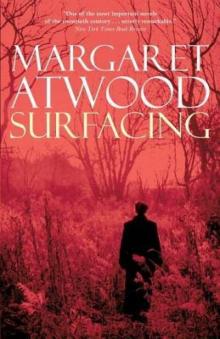 Surfacing
Surfacing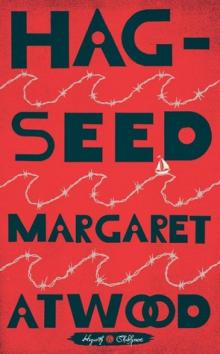 Hag-Seed
Hag-Seed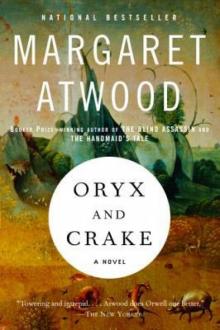 Oryx and Crake
Oryx and Crake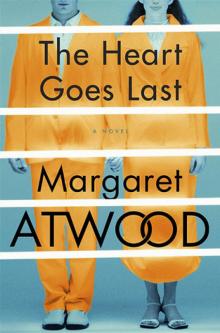 The Heart Goes Last
The Heart Goes Last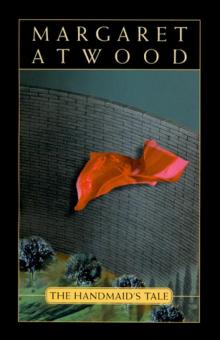 The Handmaid's Tale
The Handmaid's Tale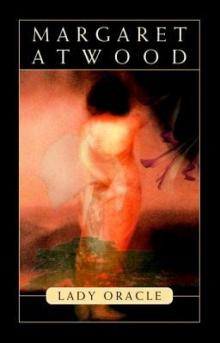 Lady Oracle
Lady Oracle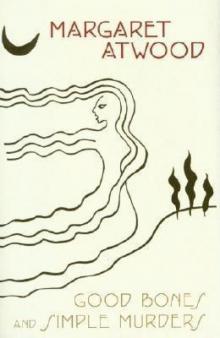 Good Bones and Simple Murders
Good Bones and Simple Murders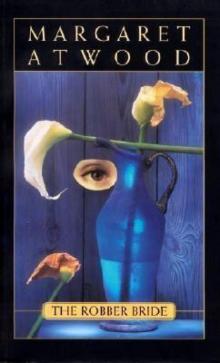 The Robber Bride
The Robber Bride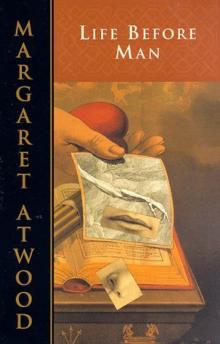 Life Before Man
Life Before Man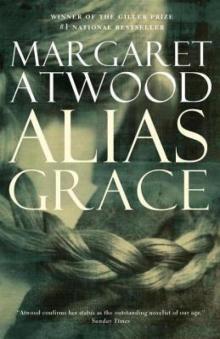 Alias Grace
Alias Grace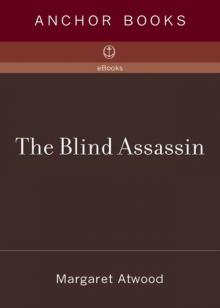 The Blind Assassin
The Blind Assassin Cat's Eye
Cat's Eye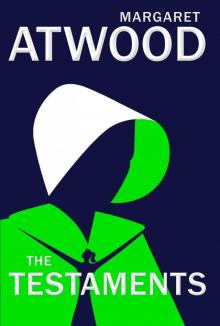 The Testaments
The Testaments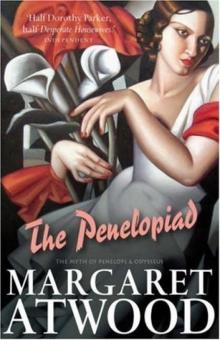 The Penelopiad
The Penelopiad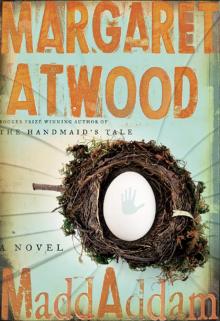 MaddAddam
MaddAddam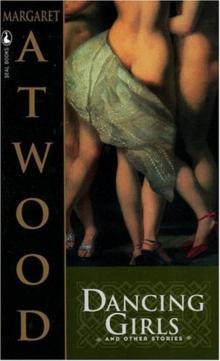 Dancing Girls & Other Stories
Dancing Girls & Other Stories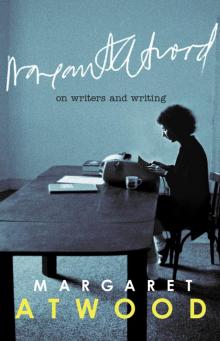 On Writers and Writing
On Writers and Writing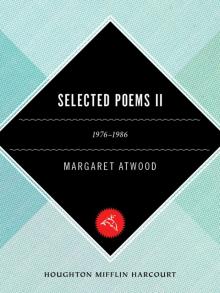 Selected Poems II (1976-1986)
Selected Poems II (1976-1986)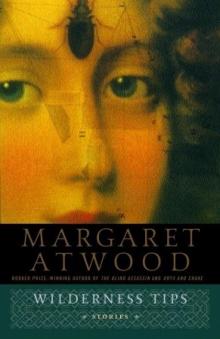 Wilderness Tips
Wilderness Tips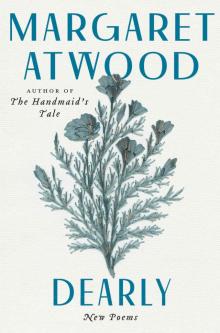 Dearly
Dearly The Tent
The Tent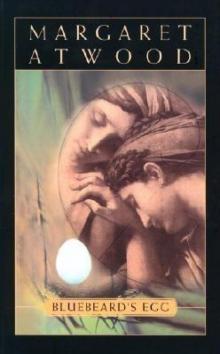 Bluebeard's Egg
Bluebeard's Egg The Edible Woman
The Edible Woman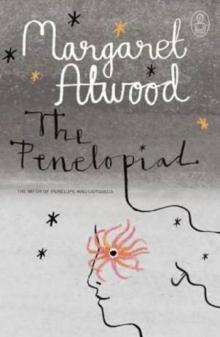 The Penelopiad: The Myth of Penelope and Odysseus
The Penelopiad: The Myth of Penelope and Odysseus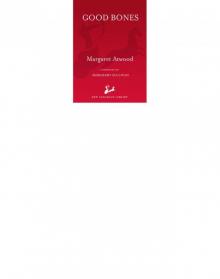 Good Bones
Good Bones I Dream of Zenia with the Bright Red Teeth
I Dream of Zenia with the Bright Red Teeth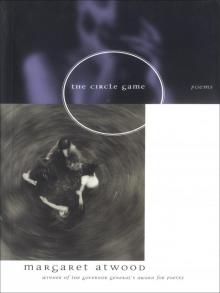 Circle Game
Circle Game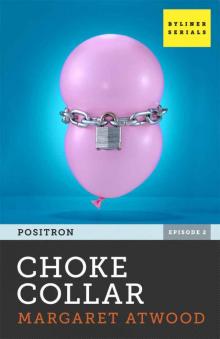 Choke Collar: Positron, Episode Two
Choke Collar: Positron, Episode Two Stone Mattress: Nine Tales
Stone Mattress: Nine Tales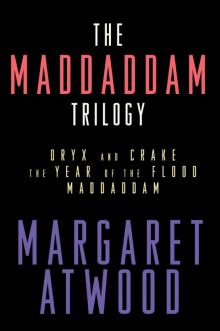 The MaddAddam Trilogy
The MaddAddam Trilogy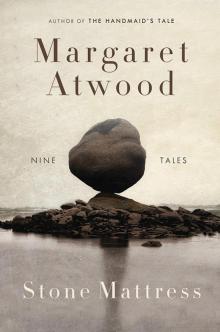 Stone Mattress
Stone Mattress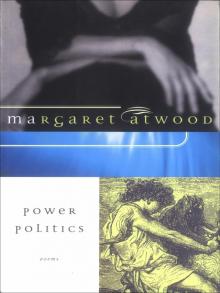 Power Politics
Power Politics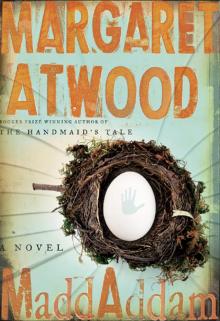 MaddAddam 03 - MaddAddam
MaddAddam 03 - MaddAddam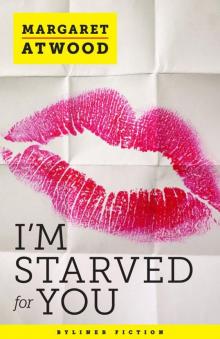 I’m Starved for You (Kindle Single)
I’m Starved for You (Kindle Single)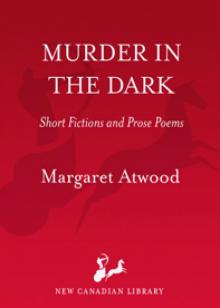 Murder in the Dark
Murder in the Dark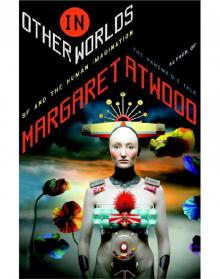 In Other Worlds
In Other Worlds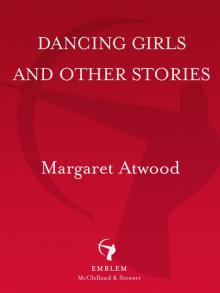 Dancing Girls
Dancing Girls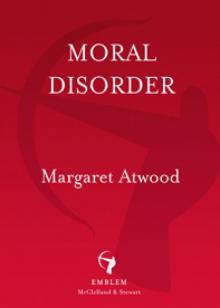 Moral Disorder
Moral Disorder